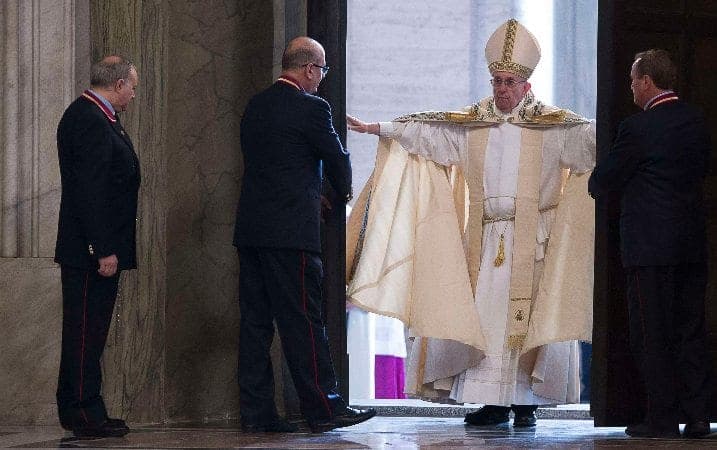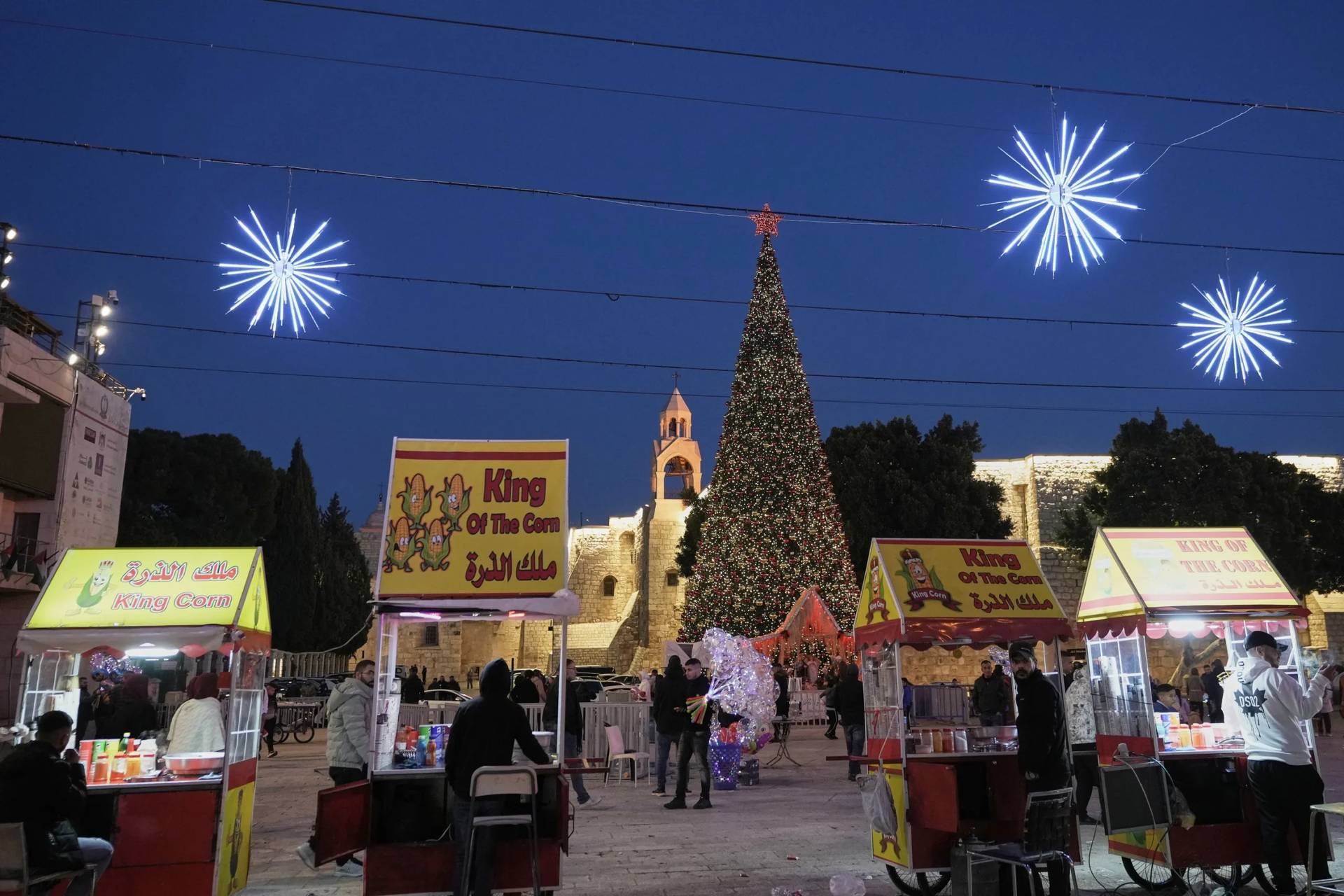ROME — Pope Francis opened his Jubilee of Mercy on Tuesday, saying that this year will be one in which Catholics are called to grow ever more convinced of God’s mercy, which should always come before judgment.
“How much wrong we do to God and his grace when we speak of sins being punished by his judgment before we speak of their being forgiven by his mercy,” he said as he celebrated a Mass in St. Peter’s Square that marked the opening of the jubilee.
“We have to put mercy before judgment,” he added.
After Mass, Francis opened the Holy Door in St. Peter’s Basilica.
At the invitation of Francis, a noticeably frail Emeritus Pope Benedict XVI was present during the ceremony. He arrived in the atrium of St. Peter’s Basilica 20 minutes before the end of the Mass, where he waited for his successor, who gave him a hug before heading toward the door.
The Holy Door is traditionally bricked up until it’s opened to mark the beginning of a jubilee year. This was the first time in history that two popes were present for the ceremony.
After Francis pushed open the heavy bronze door, he went through and waited for his predecessor, who was flanked by his personal secretary Archbishop Georg Gaenswein. Once inside, they hugged again.
In the past, popes would traditionally strike the door three times with a silver hammer before throwing it open. However, St. John Paul II decided to eliminate that ritual for the opening of the jubilee in 2000, and Francis followed suit.
Explaining the Holy Year to a square that was mostly full despite cold temperatures and light rain, Francis said that it’s a gift of grace.
“To enter through the Holy Door means to rediscover the deepness of the mercy of the Father, who welcomes all and goes out to meet everyone personally,” he said.
The Jubilee of Mercy begins on the feast of the Immaculate Conception of Mary and will close on Nov. 20, the Solemnity of Christ the King.
After opening the door, Francis went to the window of the Apostolic Palace to pray the Angelus with the faithful, with his focus on the Marian feast.
“Celebration of this feast involves two things,” Francis said. “Fully accepting God and his merciful grace in our lives, [and] becoming, in turn, artisans of mercy through an authentic evangelic path.”
He said that the feast becomes a celebration only if Catholics give a daily “yes” that aims to “overcome our selfishness, and make the life of our brothers happier by giving them hope, wiping a few tears and donating a little joy.”
Later on Tuesday, Pope Francis was scheduled to visit a square in downtown Rome where he’ll pray in front of a monument dedicated to the Immaculate, and from there visit St. Mary Major, a basilica in Rome he visits before and after every international trip.
Francis is not expected to attend “Fiat Lux: Illuminating Our Common Home,” an artistic projection onto St. Peter’s that’s being presented as a “a gift of contemporary public art” to the pontiff by a coalition of production companies and charitable foundations, including the World Bank’s “Connect4Climate” group.
On Sunday, for the first time in this 700-year old tradition, dioceses around the world are to open their own Holy Doors. At the request of Pope Francis, bishops had to select a door in local cathedrals or significant churches, such as a Marian shrine, for the faithful to go through.
There will be three other Holy Doors opened in Rome, one at each major basilica. Francis will open St. John Lateran’s on Sunday, St. Mary Major’s Jan. 1, and St. Paul Outside the Walls on Jan. 26.
With the proper preparation, the passage through these doors gives faithful what’s known as a “plenary indulgence.” According to the teachings of the Catholic Church, these indulgences grant remission of all temporal punishment due to sins that have already been forgiven through the sacrament of Confession. They can also be offered for the souls in purgatory.
St. Peter’s Square became steadily more crowded throughout the Mass, though it was never at full capacity. During recent papal events, including the Wednesday audience and Sunday Angelus prayer, thousands of people were left outside because they hadn’t arrived early enough to go through the tight security controls now in place around the Vatican.
Checkpoints worked better on Tuesday, with dozens of volunteers directing pilgrims and the 2,200 priests who began arriving around 5 a.m., but as the Mass started, several thousand were still trying to enter the square.

















